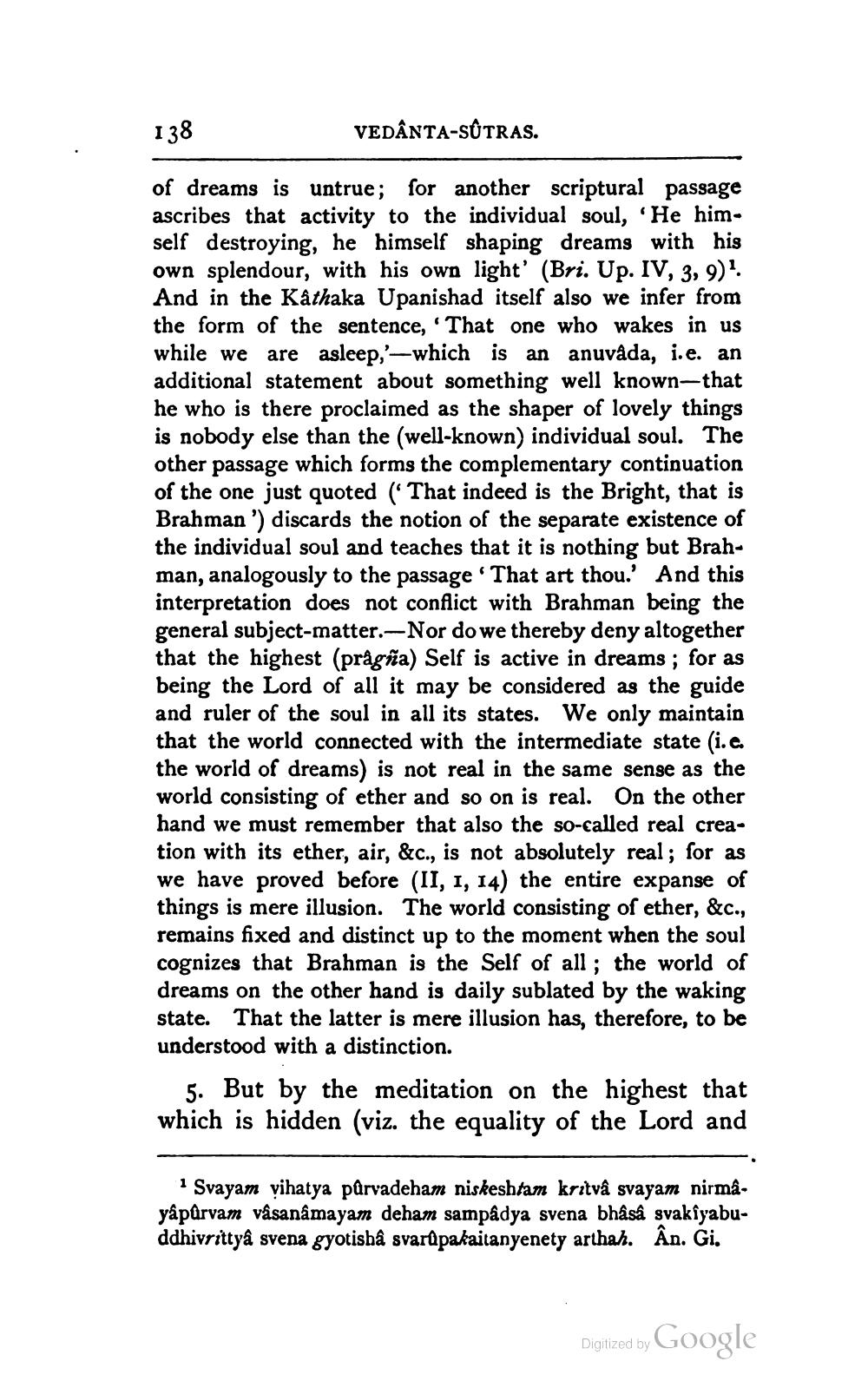________________
138
VEDÂNTA-SÚTRAS.
of dreams is untrue; for another scriptural passage ascribes that activity to the individual soul, 'He him. self destroying, he himself shaping dreams with his own splendour, with his own light' (Bri. Up. IV, 3, 9)1. And in the Kathaka Upanishad itself also we infer from the form of the sentence, 'That one who wakes in us while we are asleep,'—which is an anuvada, i.e. an additional statement about something well known that he who is there proclaimed as the shaper of lovely things is nobody else than the (well-known) individual soul. The other passage which forms the complementary continuation of the one just quoted ("That indeed is the Bright, that is Brahman ') discards the notion of the separate existence of the individual soul and teaches that it is nothing but Brahman, analogously to the passage That art thou.' And this interpretation does not conflict with Brahman being the general subject-matter.-Nor do we thereby deny altogether that the highest (prågña) Self is active in dreams; for as being the Lord of all it may be considered as the guide and ruler of the soul in all its states. We only maintain that the world connected with the intermediate state (i.e. the world of dreams) is not real in the same sense as the world consisting of ether and so on is real. On the other hand we must remember that also the so-called real creation with its ether, air, &c., is not absolutely real; for as we have proved before (II, 1, 14) the entire expanse of things is mere illusion. The world consisting of ether, &c., remains fixed and distinct up to the moment when the soul cognizes that Brahman is the Self of all; the world of dreams on the other hand is daily sublated by the waking state. That the latter is mere illusion has, therefore, to be understood with a distinction.
5. But by the meditation on the highest that which is hidden (viz. the equality of the Lord and
1 Svayam vihatya pūrvadeham niskeshtan kritvå svayam nirmayâpârvam vâsanamayam deham sampâdya svena bhâsâ svakîyabuddhivrittyâ svena gyotisha svarů pakaitanyenety arthah. Ân. Gi.
Digitized by
Digitized by Google




